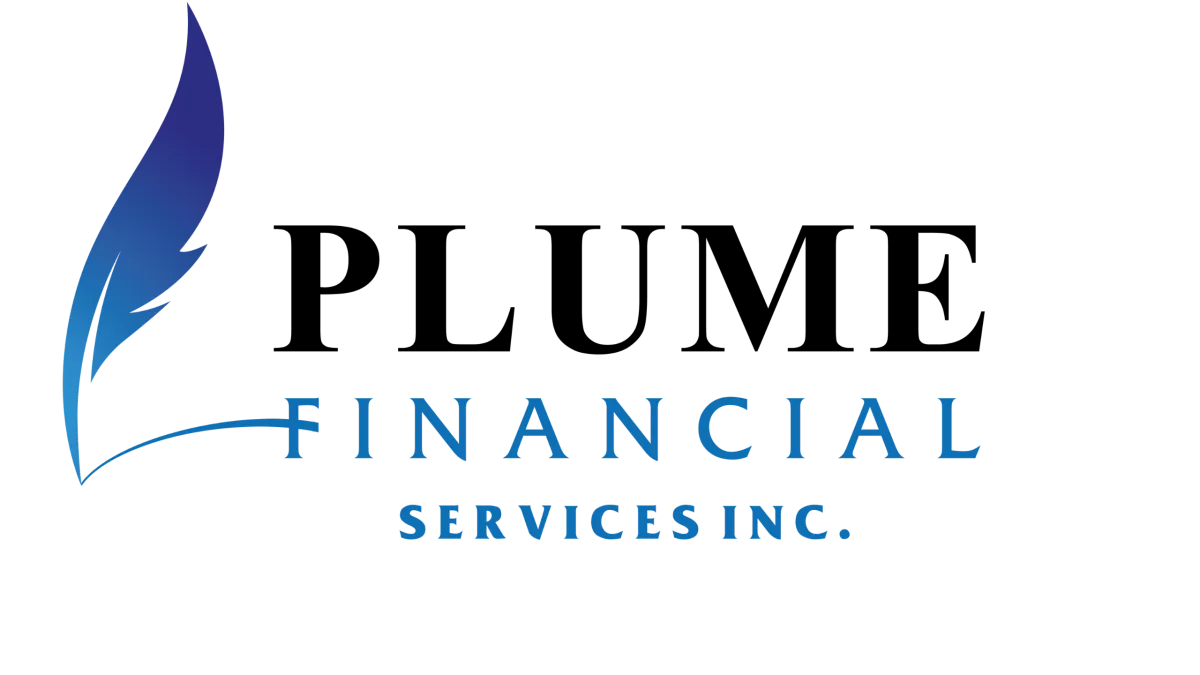
Blog

How to Make a Financial Plan: A Comprehensive Guide for Canadians
Creating a robust financial plan is a crucial step for every Canadian aiming to secure their financial future. Whether you're dreaming of a comfortable retirement, planning to invest, or simply wanting to manage your current financial situation better, having a clear and detailed plan will help you reach your goals. This guide will walk you through the essentials of financial planning, ensuring that you have the tools and knowledge to make informed decisions about your finances.
What is a financial plan and Why Do You Need One?
Understanding the Basics of a Financial Plan
A financial plan is essentially a roadmap for your financial journey. It outlines your financial goals, current financial situation, and the steps you need to take to achieve your objectives. This plan includes everything from budgeting and saving strategies to investment plans and retirement planning. For Canadians, understanding the basics of a financial plan is critical to ensuring that you can navigate the complexities of personal finance with confidence. A good financial plan not only includes immediate financial needs but also considers long-term goals, such as buying a home or building an estate. By keeping your financial information organized and clear, you can make informed decisions and set aside resources to secure your future.
Why a Financial Plan Can Help You Achieve Your Goals
Having a financial plan can help you align your financial actions with your personal goals. Whether you aim to pay off your mortgage, invest in mutual funds, or save for retirement, a financial plan helps you prioritize and allocate your resources effectively. It acts as a guide that keeps you on track, reminding you of your long-term financial goals and the importance of disciplined saving and investing. A financial plan also provides peace of mind, knowing that you have a concrete strategy to manage your finances and adapt to life's unexpected changes. By regularly reviewing and updating your plan, you can ensure that it continues to reflect your evolving financial situation and aspirations.
The Importance of a Financial Planner in Your Journey
While some may choose to manage their finances independently, working with a financial planner can help you reach your goals more efficiently. A financial planner brings expertise and objectivity to the table, offering tailored advice that aligns with your financial needs and risk tolerance. They can help you design a financial plan that accounts for important financial considerations, such as tax implications, investment opportunities, and retirement savings. Furthermore, a financial planner can help you navigate complex financial products like mutual funds and investment accounts, ensuring that your investments align with your financial goals. In Canada, financial planners can also provide guidance on unique programs and benefits available, helping you make the most of what canada.ca offers.
How to Make a Financial Plan That Fits Your Goals
Steps to Get Started with Your Financial Planning
Getting started with financial planning begins with understanding your current financial situation. This involves assessing your income, expenses, debts, and assets. Once you have a clear picture of where you stand financially, you can begin to set financial goals. Using a calculator can help you estimate how much you need to save and invest to reach your objectives. Next, prioritize your goals based on urgency and importance—this could include building an emergency fund, paying off a credit card, or saving for a down payment. As you move forward, track your progress and make adjustments to your plan as needed. Remember, a flexible financial plan will help you adapt to changes in your life and the economy.
Setting and Prioritizing Financial Goals
Setting and prioritizing financial goals is a fundamental step in financial planning. Start by identifying what you want to achieve financially, such as purchasing a home, funding education, or preparing for retirement. Once you've listed your goals, rank them based on their importance and timeline. Short-term goals might include creating a budget or reducing debt, while long-term goals could involve saving for retirement or estate planning. It's crucial to be realistic about what you can achieve and to set measurable objectives. By breaking down your goals into manageable steps, you can track your progress and maintain motivation. A financial planner can help you set realistic goals and provide strategies to achieve them efficiently.
Design Your Financial Plan for Long-Term Success
Designing your financial plan for long-term success requires careful consideration of your financial needs and aspirations. This involves creating a comprehensive strategy that encompasses budgeting, investment planning, and risk management. An effective financial plan should also factor in potential life changes, such as marriage, children, or career shifts, and how these may impact your financial situation. Incorporating flexibility into your plan allows you to adapt to unforeseen circumstances while staying focused on your long-term financial goals. Regularly reviewing and updating your plan ensures it remains aligned with your evolving priorities and financial landscape. Working with a financial advisor can provide valuable insights and help you design a financial plan that stands the test of time, ultimately helping you achieve your desired financial future.
How Can a Financial Plan Help You Invest?
Creating an Investment Plan to Secure Your Future
Creating an investment plan is a crucial component of any financial strategy aimed at securing your future. An investment plan outlines how you will allocate your resources across different asset classes, such as stocks, bonds, and mutual funds, to build wealth over time. It takes into account your financial goals, risk tolerance, and time horizon, ensuring that your investments align with your overall financial plan. By diversifying your portfolio, you can reduce risk and enhance potential returns. An investment plan also includes regular evaluations to monitor performance and make necessary adjustments. This proactive approach helps you stay on track to achieve your financial objectives while adapting to market changes. A financial planner can assist you in crafting a tailored investment strategy that meets your unique needs and maximizes your financial potential.
Understanding Risk Tolerance in Your Investment Strategy
Risk tolerance is a critical factor in shaping your investment strategy. It refers to your ability and willingness to endure the fluctuations in the value of your investments. Understanding your risk tolerance helps you choose investments that match your comfort level and financial goals. For example, if you're risk-averse, you might prefer a conservative approach with a focus on bonds and other low-risk assets. Conversely, if you have a higher risk tolerance, you may opt for a more aggressive strategy with a greater emphasis on stocks and equities. Your risk tolerance can be influenced by factors such as age, income, financial obligations, and personal preferences. By accurately assessing your risk tolerance, you can design an investment portfolio that balances potential returns with acceptable levels of risk, ensuring you remain confident and committed to your financial plan.
Exploring Different Investment Options for Canadians
Canadians have a variety of investment options to consider as part of their financial planning. These include traditional avenues like stocks, bonds, and mutual funds, as well as alternative investments such as real estate and exchange-traded funds (ETFs). Each investment type carries its own set of risks and rewards, making it important to understand how they fit into your overall financial plan. For instance, mutual funds can offer diversification, while real estate might provide steady income and potential appreciation. Exploring these options with the guidance of a financial advisor can help you make informed decisions tailored to your financial goals and risk tolerance. Additionally, Canadian-specific investment vehicles such as Registered Retirement Savings Plans (RRSPs) and Tax-Free Savings Accounts (TFSAs) offer unique tax advantages. Leveraging these tools effectively can enhance your savings and investment potential, contributing significantly to your long-term financial success.
How to Get Started with a Financial Planner
Finding the Right Financial Advisor for Your Needs
Finding the right financial advisor is an important step in your financial planning journey. A qualified advisor can provide personalized guidance and help you build a financial plan that aligns with your goals. Start by identifying advisors with the necessary credentials and a track record of success. Consider their areas of expertise, such as retirement planning or investment management, to ensure they meet your specific needs. It's also essential to assess their communication style and approach to ensure a comfortable working relationship. Take the time to interview potential advisors, asking about their experience, services, and fee structure. By selecting a financial advisor who understands your unique circumstances and shares your financial philosophy, you can gain valuable insights and support in achieving your financial objectives.
Working with a Financial Planner to Reach Your Goals
Working with a financial planner can be a game-changer in reaching your financial goals. A financial planner provides expertise and strategic advice, helping you navigate complex financial decisions and optimize your financial plan. They work with you to understand your financial situation, clarify your objectives, and create a customized plan that addresses your short-term and long-term goals. A financial planner also assists in monitoring your progress, making adjustments as needed to ensure you stay on track. Regular consultations with your planner provide opportunities to review your financial plan and adapt to any changes in your life or the economy. This collaborative approach not only enhances your financial understanding but also empowers you to make informed choices that lead to financial success and peace of mind.
Questions to Ask a Financial Professional
When meeting with a financial professional, asking the right questions can provide valuable insights and help you make informed decisions. Start by inquiring about their qualifications, experience, and the range of services they offer. It's important to understand their approach to financial planning and whether it aligns with your goals and values. Ask about their fee structure to ensure transparency and avoid any unexpected costs. Additionally, discuss their investment philosophy and how they tailor their strategies to suit individual clients. Inquire about their process for assessing risk tolerance and how they incorporate it into your financial plan. By asking these questions, you can evaluate whether the financial professional is the right fit for you and ensure that you receive comprehensive and trustworthy guidance in your financial journey.
How to Plan for Retirement in Canada
Building a Retirement Plan That Works for You
Building a retirement plan that works for you is essential for ensuring a comfortable and secure future. Start by evaluating your retirement goals, such as the age you wish to retire and the lifestyle you envision. Consider your current savings, income sources, and potential expenses to determine how much you'll need to save. Use retirement calculators to estimate the required savings and explore strategies to bridge any gaps. Incorporating diverse savings vehicles, such as RRSPs and TFSAs, can maximize tax advantages and boost your retirement savings. Regularly review and adjust your retirement plan to account for changes in your financial situation or goals. Working with a financial planner can provide expert guidance and help you design a retirement plan tailored to your unique needs and aspirations.
Understanding Retirement Savings Options
Understanding retirement savings options is crucial for Canadians looking to secure their financial future. The most common options include Registered Retirement Savings Plans (RRSPs) and Tax-Free Savings Accounts (TFSAs), each offering unique benefits. RRSPs provide tax-deferred growth, allowing you to save pre-tax dollars and defer taxes until withdrawal, typically in retirement when your tax rate may be lower. TFSAs, on the other hand, offer tax-free growth and withdrawals, making them a flexible option for both short-term and long-term savings. Additionally, consider employer-sponsored plans such as pensions or group RRSPs, which may offer matching contributions. By understanding these options and integrating them into your financial plan, you can optimize your retirement savings and work towards achieving your long-term financial goals.
How to Achieve Your Long-Term Financial Goals
Achieving your long-term financial goals requires a well-structured plan and disciplined execution. Begin by clearly defining your goals, such as buying a home, funding education, or retiring comfortably. Develop a financial plan that outlines the steps needed to reach these objectives, including budgeting, saving, and investing strategies. Regularly monitor your progress and adjust your plan as needed to stay on track. Consider working with a financial planner to gain expert insights and tailored advice that aligns with your goals. Additionally, cultivate good financial habits, such as living within your means, avoiding unnecessary debt, and continuously educating yourself about personal finance. By maintaining focus and commitment, you can turn your long-term financial goals into reality and enjoy the peace of mind that comes with financial security.
Location
400-494 Queen St,
Fredericton, NB, E3B 1B6
Office (506) 406-6100
© 2026 Plume Financial Services Inc.
